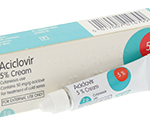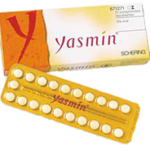Ventolin is a drug based on the active ingredient salbutamol, belonging to the respiratory adrenergic category and specifically selective beta2-adrenergic receptor agonists. Ventolin is used for the treatment of various diseases and pathologies such as asthma, emphysema and sinusitis.
Action: how Ventolin works
 Salbutamol is a short-acting selective β2 receptor agonist. β2 receptors are predominant in bronchial smooth muscle. Selectively bound to β2-adrenergic receptors in bronchial smooth muscle, salbutamol activates the intracellular adenylate cyclase, an enzyme that catalyzes the conversion of adenosine triphosphate (ATP) to cyclic adenosine monophosphate (cAMP)
Salbutamol is a short-acting selective β2 receptor agonist. β2 receptors are predominant in bronchial smooth muscle. Selectively bound to β2-adrenergic receptors in bronchial smooth muscle, salbutamol activates the intracellular adenylate cyclase, an enzyme that catalyzes the conversion of adenosine triphosphate (ATP) to cyclic adenosine monophosphate (cAMP)
The increase in cAMP determines:
- Bronchodilation: in fact cAMP catalyzes the activation of kinase proteins that determine the inhibition of the release of calcium ions from intracellular deposits, the sequestration of intracellular Ca2 + and a reduction in the entry of Ca2 +, with consequent relaxation of smooth muscle and therefore bronchodilation
- Inhibition of the release of phlogogenic mediators from mast cells
- Increased mucociliary clearance
What is Ventolin used for?
Ventolin is indicated for the treatment of bronchial asthma and obstructive bronchopathy with asthmatic component. Ventolin 100 mcg pressurized inhalation suspension is indicated in adults, adolescents and children aged 4 to 11 years.
Ventolin contains salbutamol, a substance which is a selective beta2 adrenergic agonist administered in bronchospasm therapy. Ventolin provides short duration bronchodilation (4 hours) in reversible airway obstruction caused by asthma, chronic bronchitis and emphysema.
Use & dosage
Ventolin should only be administered by inhalation. An increased need to use beta2-agonists may indicate a deterioration in asthma conditions. If this occurs, a review of the patient’s treatment plan may be considered. Suitable spacer devices can be applied. Since adverse events may occur at high doses, the dosage and posology are a subject to change upon the doctor’s advice. The duration of Ventolin action most patients is 4–6 hours. Adults Treatment of acute bronchospasm and control of episodic asthma 1–2 inhalations (100–200 mcg).
Chronic therapy
Up to 2 inhalations (200 mcg) 4 times a day. The use of Ventolin should not exceed 4 administrations per day. Perform a maximum of 2 spray administrations at a time and do not repeat the treatment before 4 hours. The increase in the rate of the administration and the dosage of symptoms of the sudden worsening of asthma conditions.
Pediatric population
Children using Ventolin 100 mcg pressurized inhalation suspension may benefit from the special spacer with a facial mask.
Attenuation of bronchospasm in the acute phase
Habitual Ventolin dose for children under 12 years: 1 inhalation (100 mcg). The dose can be increased up to 2 inhalations (200 mcg), if necessary.
Pediatric population of 12 years of age and older: the same Ventolin doses as in adults are applied. Use of Ventolin pressurized inhalation suspension should not exceed 4 doses per day. The need to take additional doses or increase the dose indicates a deterioration in asthma condition.
Chronic therapy
Habitual dosage for pediatric population under 12 years: up to 2 inhalations (200 mcg) 4 times a day. Pediatric population 12 years of age and older: adult Ventolin dosing rules apply.
Interactions with other medicines
Normally Ventolin and non-selective beta-blockers, such as propranolol, should not be prescribed simultaneously. Ventolin is not contraindicated in patients receiving monoamine oxidase inhibitors (anti-MAO drugs); patients on tricyclic antidepressants and digoxin may present the risk of greater cardiovascular effects. Severe hypokalaemia may follow coadministration with xanthine derivatives, steroids, diuretics and beta2-agonists.
While you are using Ventolin
A sudden aggravation of the symptoms may require an increase in the dosage of steroids that must be administered urgently under the supervision of the doctor. In patients considered at risk, daily monitoring of the peak flow can be recommended by the doctor. You should consult your doctor whenever the usual efficacy or duration of action is decreased and you do not increase the dose or frequency of administration. Sympathomimetic agents should be used very cautiously in patients who may be particularly susceptible to their effects. Tell your doctor if you have heart disease or angina before starting salbutamol therapy.
In patients with diseases such as coronary heart disease, arrhythmias, arterial hypertension and in patients with glaucoma, hyperthyroidism, thyrotoxicosis, pheochromocytoma, diabetes and prostatic hypertrophy, the product should be used only in cases of absolute necessity.
Ventolin for asthma treatment
 Patients with severe asthma have constant symptoms and frequent exacerbations; their lung function is reduced, they have PEF values lower than 60% of normal with variability even higher than 30%.
Patients with severe asthma have constant symptoms and frequent exacerbations; their lung function is reduced, they have PEF values lower than 60% of normal with variability even higher than 30%.
The treatment of asthma should normally be performed as part of a therapeutic plan adapted to the severity of the disease; the patient’s response to therapy must be verified both clinically and via pulmonary function tests.
The need to resort more frequently to inhaled beta2-agonists with a short duration of action for the control of symptoms, indicates a worsening of asthma control; in this circumstance the treatment plan must be modified.
A sudden and progressive aggravation of asthma is potentially life-threatening and may call for establishing corticosteroid therapy or increasing its dosage.
Chronic bronchitis
Both bronchitis and asthma are two very common lung conditions. Each has its own characteristics:
Origin: infectious for bronchitis; often allergic to asthma.
Physiology: secretion of pus for bronchitis; narrowing of the bronchi for asthma. In this type of bronchitis, the mechanisms are multiple: intensity of the initial inflammation that causes the constriction of bronchi too reactive, or a lot of edema in the wall, or excess secretions that obstruct airways.
Symptoms: fever, cough and sputum for bronchitis; difficulty breathing for asthma.
In this connection, it is logical to use Ventolin in chronic bronchitis alongside with other therapies as indicated by prescriber; often antibiotics for this type of bronchitis are added.
Contraindications
Ventolin is contraindicated in case of sensitivity to the active ingredient or to any of the complementary substances. Salbutamol formulations should not be used in the threat of abortion.
Although a percentage of congenital anomalies similar to that reported in the population not exposed to the drug was reported among the patients who took salbutamol during pregnancy, its use in pregnancy is not recommended, except in cases where the benefit to the mother is greater than the possible risk to the fetus.
Side effects
In addition to the beneficial effects, each drug can have some side effects. Unlike corticosteroids taken by mouth or by injection, inhaling this drug does not cause serious health risks. In addition to dry throat and hoarseness, inhalation may rarely cause coughing or, paradoxically, breathing difficulties. The only disorder that occurs with some frequency is candidiasis of the mouth (or lily of the valley), a fungus infection easily recognizable by its white color. To reduce the risk of candidiasis it is important to rinse the mouth with water after inhalation, to remove the share of the drug deposited in the mouth.
Posted in Asthma
(1 voices, average: 5 of 5) 3729 views























